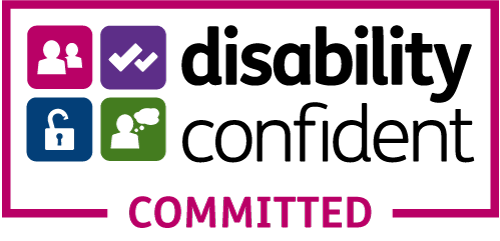On-boarding new staff members is a critical process for organisations of any size. It sets the tone for their entire journey whilst working with you, impacting their productivity, engagement, and overall satisfaction. A well-crafted on-boarding process not only ensures a smooth transition for new hires but also creates a sense of belonging and loyalty from the offset.
Let us share some of best practices and strategies for effective on-boarding that we have learned over the years. Aimed at creating a seamless and enriching experience for both your business and its newest members.

Why is Onboarding Important?
Before diving into the specifics of on-boarding, it’s crucial to know why it holds such significance. Well delivered on-boarding serves multiple purposes:
- Accelerating Productivity: A well-structured on-boarding program helps your new hires get up to speed quickly, enabling them to contribute to their roles effectively from day one.
- Cultivating Engagement: By providing the necessary tools, support, and information, on-boarding creates a sense of connection and commitment among new employees.
- Retention and Satisfaction: Studies have shown that employees who undergo a structured on-boarding process are more likely to stay with the organisation long-term and report higher levels of job satisfaction.
- Building Company Culture: On-boarding offers an opportunity to introduce new hires to your company’s values, mission, and culture, facilitating alignment and integration into the organisational ethos.
So, let’s explore the key components of an effective on-boarding process
Preparing Before Day One:
Effective onboarding starts even before the new hire sets foot in the office. Preparing a comprehensive onboarding plan that outlines tasks, resources, and timelines is essential. This plan should include:
- Administrative Tasks: Ensure all necessary paperwork, including employment contracts, benefits enrolment forms, and company policies, are completed and ready for the new hire to review and sign.
- Equipment and Workspace Setup: Arrange for necessary equipment such as computers, phones, and access cards to be ready on the first day. Also, prepare a designated workspace that is clean, organised, and equipped with the tools and resources needed to perform the job.
- Welcome Kit: Consider providing a welcome kit or package containing company some company merchandise, essential documents, and any other relevant materials to make the new employee feel valued and excited about joining the team.

Personalised Orientation:
No two employees are the same, and their on boarding experience should reflect that. Tailoring the orientation process to meet the individual needs and preferences of each new hire can significantly enhance their on boarding experience. This may include:
- Customised Training Plans: Identify the specific skills and knowledge areas that each new employee needs to succeed in their role and design a training plan that addresses those needs. This could involve a combination of formal training sessions, shadowing opportunities, and on-the-job learning experiences.
- Mentorship and Buddy Programs: Pairing new hires with experienced employees who can serve as mentors or buddies can help them navigate the business more effectively and provide valuable support and guidance during the on boarding process.
- Goal Setting and Expectation Alignment: Clearly communicate performance expectations, goals, and milestones to new employees, and work with them to establish a road map for success in their roles. Regular check-ins and feedback sessions can help ensure that new hires are on track and address any concerns or challenges they may encounter.
Immersive Culture Integration:
Company culture plays an important role in shaping the employee experience and creating a sense of belonging. Incorporating cultural immersion activities into the on boarding process can help new hires understand and embrace the organisation’s values, norms, and traditions. This may include:
- Introduction to Key Stakeholders: Arrange meetings or informal gatherings with key stakeholders, including senior leaders, team members, and cross-functional partners, to introduce new employees to the broader organisational network and build relationships.
- Cultural Workshops and Activities: Host workshops, seminars, or team-building activities that highlight the company’s culture, mission, and core values. Encourage new hires to actively participate and share their perspectives, fostering a sense of community and shared purpose.
- Social Integration Opportunities: Host social events or outings, such as team lunches, happy hours, or volunteer activities, where new hires can connect with their colleagues on a more personal level and build relationships outside of work.

Immersive Culture Integration:
Onboarding doesn’t end after the first week, month or even 90 days —it’s an ongoing process that requires continuous support and feedback to ensure long-term success and retention. Implementing processes for ongoing support and feedback can help new hires settle into their roles and the organisation more effectively. This may include:
- Regular Check-Ins: Schedule regular check-in meetings between new hires and their managers to discuss progress, address any concerns or challenges, and provide feedback and guidance.
- Performance Reviews: Conduct formal performance reviews at regular intervals to assess new hires’ progress against their goals and performance expectations. Provide constructive feedback and development opportunities to support their growth and development within the organisation.
- Open-Door Policy: Encourage new hires to ask questions, seek assistance, and provide feedback freely by maintaining an open-door policy and creating a culture of transparency and trust within the organisation.
Final thoughts:
Effective on-boarding is a multifaceted process that requires careful planning, personalisation, and ongoing support. By prioritising the needs and experiences of new hires and fostering a culture of inclusion and support, organisations can create a seamless and enriching on-boarding experience that sets the stage for long-term success and engagement. Investing time and resources into developing a comprehensive on-boarding program is not only beneficial for new employees but also for the business, contributing to increased productivity, retention, and overall employee satisfaction.





